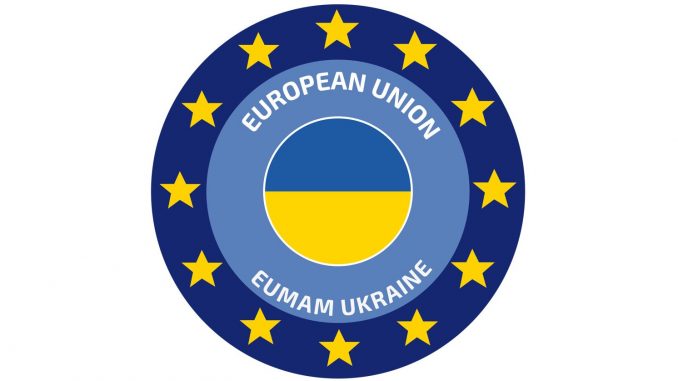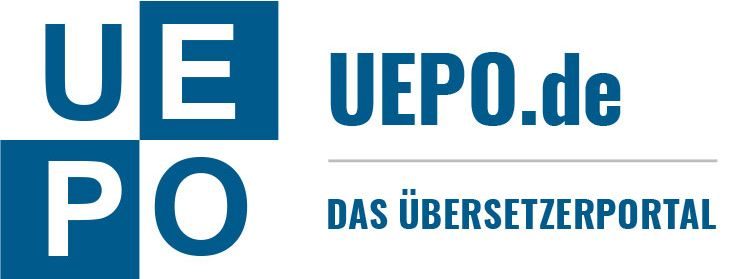
Im endlosen Krieg um die Ukraine, den niemand gewinnen wird, ruft die Europäische Union jetzt Dolmetscher dazu auf, die Kriegsvorbereitungen zu unterstützen. Dabei geht es im Wesentlichen um die Schulung ukrainischer Soldaten an westlichem Kriegsgerät.
„Könnten Ihre Unterstützung gut gebrauchen“
In dem Aufruf, der auf der Website des „Knowledge Centre on Interpretation“ veröffentlicht wurde, heißt es:
Dolmetscher sind einer der entscheidenden Erfolgsfaktoren bei der Ausbildung.
In mehreren beitragenden Ländern besteht ein anhaltender Mangel an Dolmetschern, die bereit und in der Lage sind, die Ausbildung zu unterstützen. Das hat zur Folge, dass die Ausbildungsziele manchmal nur unzureichend erreicht werden können. Hier könnten wir Ihre Unterstützung gut gebrauchen.
In enger Zusammenarbeit mit dem SCIC (Generaldirektion Dolmetschen der Europäischen Kommission) hat der MPCC [Military Planning and Conduct Capability] eine Kampagne initiiert, um das breite europäische Netzwerk des SCIC zu aktivieren, mit dem Ziel, mehr Dolmetscher für die jeweiligen beitragenden Nationen zu gewinnen.
Sind Sie daran interessiert, einen Beitrag zu leisten, oder kennen Sie jemanden, der dies tun würde? Bitte melden Sie sich so bald wie möglich an und/oder verbreiten Sie diese Nachricht.
Keine Fronteinsätze
Zur Beruhigung von Interessenten, die befürchten, an der Ostfront verheizt zu werden, weist die EU auf Folgendes hin: „Die Schulungen finden ausschließlich auf dem Territorium der beitragenden Länder statt.“
Die westlichen Kriegsparteien verfolgen nach wie vor die Strategie, „bis zum letzten Ukrainer“ zu kämpfen, ohne dabei eigene Menschenleben zu gefährden.
„Anspruchsvoll, aber interessant“
Weiter heißt es:
Die Umstände vor Ort sind nicht immer einfach, wie Sie sich vielleicht vorstellen können. Die Gelände- und Wetterbedingungen und der oft spezifische Militärjargon machen die Arbeit des Dolmetschers anspruchsvoll, aber interessant. Aufgrund dieses militärischen Arbeitsumfelds und gemäß den nationalen Vorschriften werden potenzielle Dolmetscher im Vorfeld einer Sicherheitsüberprüfung unterzogen.
„Your contribution can make a difference“
Abschließend wird Dolmetschern versichert, ihre Arbeit könne einen wichtigen Beitrag zum Erfolg der „Mission“ leisten:
Your contribution can make a difference and represent an important aid to the success of the Mission.
Der gesamte Text im englischen Wortlaut:
*
Interpreters needed for the EU Military Assistance Mission in support of Ukraine
Russia’s unprovoked and unjustified war of aggression against Ukraine has brought war back to Europe. The EU and international partners are providing substantial political, military, financial and humanitarian support to Ukraine. This support includes unprecedented support to the Ukrainian Armed Forces (UAF), including military equipment as well training to the Ukrainian Armed Forces.
Mission mandate
The EU Military Assistance Mission in support of Ukraine (EUMAM Ukraine) is aimed at strengthening the capacity of the Ukrainian Armed Forces to defend Ukraine’s territorial integrity within its internationally recognised borders and to deter and respond to possible future military offensives by Russia and other potential aggressors.
Concretely, EUMAM Ukraine provides training to the Ukrainian Armed Forces personnel at basic, advanced and specialised levels on medical assistance, CBRN, demining, logistics and communication, maintenance and repair, among others. It also provides junior leadership training from section/squad and platoon levels up to company, including operational training: preparation of companies, battalions and brigades in collective manoeuvres and tactics up to battalion level; and advice on the planning, preparation and conduct of live firing exercises.
EUMAM works closely together with all other like-minded international partners to provide training support to the Ukrainian Armed Forces. EUMAM is open to the participation of third states. All mission activities are located on EU soil.
So far, the contributing nations, 24 EU Member States and 1 Third State, have offered training modules and personnel. The training is supported by the provision of equipment for lethal and non-lethal purposes to the Ukrainian Armed Forces. This equipment is provided by Member States and Third States and funded by the European Peace Facility.
Political control and strategic direction
EUMAM Ukraine, under the responsibility of the High Representative of the Union for Foreign Affairs and Security Policy and of the Council of the EU.
The Military Planning and Conduct Capability (MPCC), based in Brussels, is the Operational Headquarters and ensures the overall coordination and synchronisation at the strategic level within EUMAM Ukraine’s framework.
The integration of the training components to create formed units takes place in a multinational Combined Arms Training Command (CAT-C) established in Poland. A multinational Special Training Command (STC) commands training activities in Germany to further enhance the training offer in full coordination with CAT-C. Other contributing nations provide specific training across Europe.
Request for support
Many interpreters are needed for the different types of training in several contributing nations. The better the knowledge and skills can be transferred, the more effectively the trained Ukrainian soldiers can apply this in practice. Interpreters are really one of the critical success factors during the training.
In several contributing nations there is a persistent shortage of interpreters who are willing and able to support the training. As a result, the training goals can sometimes be insufficiently achieved. This is where we could really use your support.
In close cooperation with SCIC (the Directorate-General for Interpretation of the European Commission), the MPCC initiated a campaign to activate SCIC’s wide European network with the objective to acquire more interpreters for the respective contributing nations.
Are you interested in making a contribution or do you know someone who would? Please register as soon as possible and/or spread this message.
The trainings only take place on the territory of the contributing nations. The circumstances on the ground aren’t always easy, as you might imagine. Terrain and weather conditions and the often-specific military jargon make the interpreter’s work challenging but interesting. Due to this military working environment and according to national regulations, potential interpreters are subject to a security screening in advance.
Your contribution can make a difference and represent an important aid to the success of the Mission.
Are you interested in applying? The points of contact in the contributing nations (see list below) are waiting for your swift response. The required language combinations are the national languages, as well as English to Ukrainian and vice versa.
Each contributing nation has different laws and regulations for the use of interpreters. Your deployment as an interpreter for the Mission is therefore only the responsibility of the specific nation and not of MPCC or SCIC.
The contributing nations who would like to receive your response are:
| Country | Points of Contact | |
| Cyprus | Ministry of Defence, International Affairs Directorate of the General Staff | intaffairsarmy@cytanet.com.cy |
| Germany | Federal Ministry of Defence Germany
Bundessprachenamt (BSprA) |
www.bmvg.de/en/contact
BSprASMD1@bundeswehr.org |
| Italy | Italian Defence General Staff – General Affairs Division, Language Service Section, LTC Paolo Cappelli, Military Interpreter, Chief of Language Services |
quinto.casl@smd.difesa.it |
| Netherlands | Ministry of Defence, Defense Language Center (Talencentrum Defensie) CAPT C.K. (Chris) De Waal | OTI@mindef.nl |
| Slovenia | Ministry of Defence Defence Affairs Directorate Mr. Marko Ogrizek | marko.ogrizek@mors.si |
| Spain | Toledo Training Center, J3/5/7 OF-3 Espinosa Rubio | movil11_ttcc_j7@mde.es |
| Norway | Department of Defence, Norwegian Armed Forces Personnel Services (Forsvarets personell og vernepliktssenter (FPVS)) Jan Erik Lystad | FPVS.OPS@mil.no |
Richard Schneider
